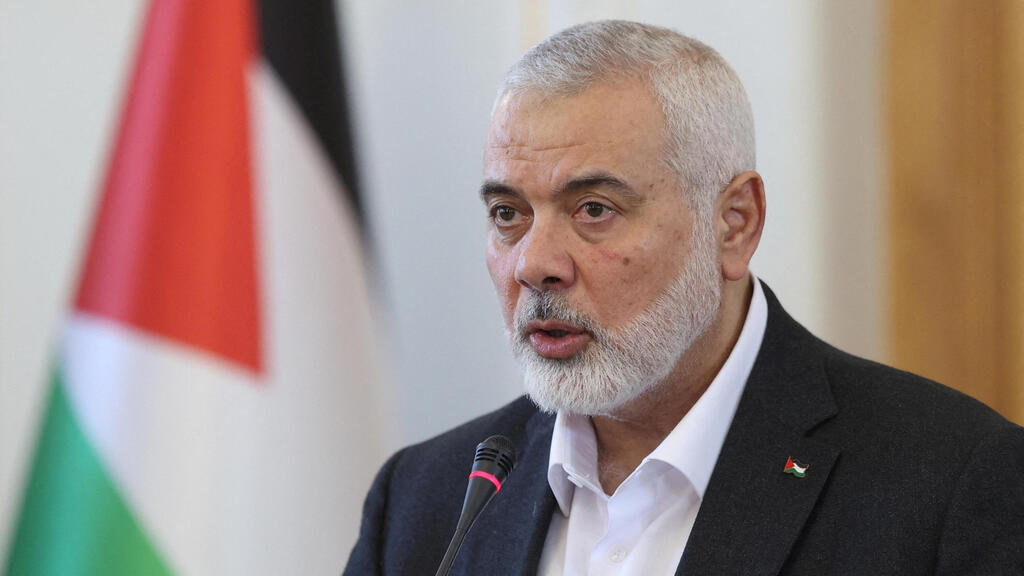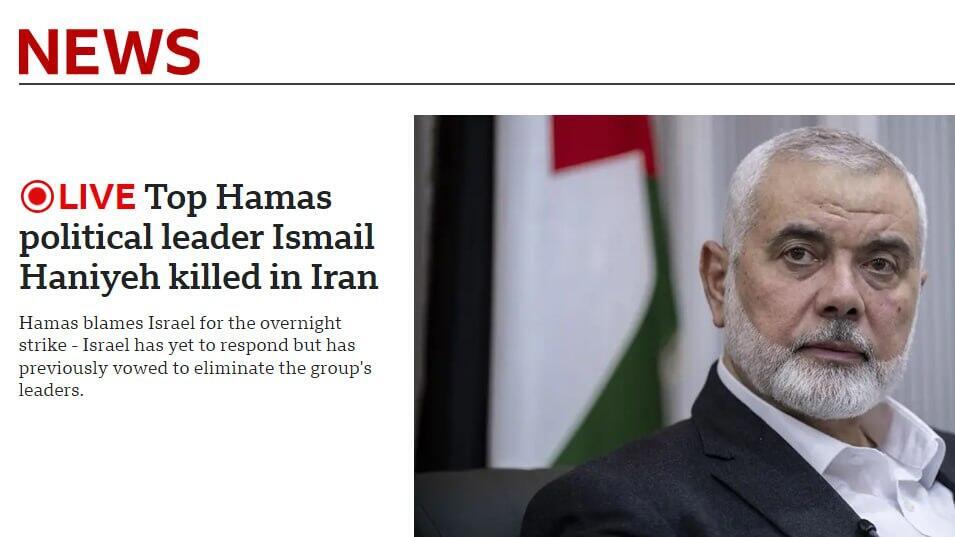Getting your Trinity Audio player ready...
For those looking for another example of the BBC's biased coverage regarding Israel and the ongoing conflict with the Palestinians, in a short profile published Wednesday on the website of the British Public Broadcasting Corporation, under the title "Who was Haniyeh? In 140 words," there was no mention of Hamas political leader Ismail Haniyeh's affiliation with a terrorist organization.
Hamas is officially defined in the UK as a terrorist organization, and in October - after the October 7 massacre carried out by Hamas forces - the network to stop calling Hamas terrorists "armed" and to start calling them operatives of "a terrorist organization outlawed by the British government and others."
2 View gallery


Ismail Haniyeh was killed in a strike in Tehran
(Photo: Majid Asgaripour/WANA (West Asia News Agency) via REUTERS/File Photo)
"Born in a refugee camp in Gaza in 1963, Ismail Haniyeh was a key member of Hamas from its inception," begins the text published on the BBC website. "he was imprisoned several times by Israel and at one point was deported to southern Lebanon for 6 months. In 2003, He survived an assassination attempt by Israel, along with the founder of Hamas.
"He was imprisoned by Israel a number of times and at one point was expelled to south Lebanon for six months. In 2003, he survived an assassination attempt by Israel, along with Hamas's founder. Three years later, he was briefly Palestinian prime minister after Hamas won elections - but a violent rift between Hamas and the other main Palestinian faction, Fatah, followed a year later.
"Widely regarded as a pragmatist, Haniyeh was said to have maintained good relations with other rival Palestinian groups. He was elected head of Hamas’s political bureau in 2017. In recent years, he lived in exile, moving between Turkey and Qatar. He had been playing a key role in negotiations over a cease-fire deal in Gaza, " reads the entire BBC profile.
In recent years, and in particular after the October 7 massacre, the BBC has been accused of covering Israel and the conflict with the Palestinians in a biased and one-sided manner. In February, accusations of antisemitism were hurled at the British Broadcasting Corporation as part of a debate in the British Parliament, and in May the British Foreign Secretary at the time, David Cameron, demanded from the BBC that Hamas terrorists be called "terrorists."
But the BBC is not the only media organization that covers Israel in a biased way. Today, in her report from Beirut after the assassination of one of Hezbollah's top commanders, Fuad Shakr, Sky News reporter Alex Crawford called Haniyeh a "moderate leader."


